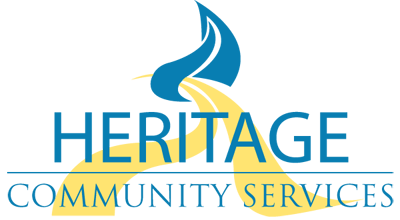Questions About Heritage Keepers Curricula
Questions About Heritage Community Services
Questions About Program Effectiveness
Questions About Program Implementation In Schools/Agencies
Questions About Heritage Resources for Adults
Questions About Heritage Keepers Curricula
[/toggle]
Heritage Keepers® addresses issues that cross the human spectrum. The extensive third party behavioral studies indicate that significant positive behavioral outcomes were found across age, gender, race, and location (rural, suburban, and urban areas). Therefore, it is effective for ALL populations.
Yes. The Heritage Keepers program meets all 66 standards of the SMARTool (Systematic Method for Assessing Risk-avoidance Tool). In fact, the Heritage Keepers program is cited on page 68 of the SMARTool as an example of a sexual risk avoidance abstinence education program that incorporates the evidence-based standards cited in the SMARTool. The program also fulfills ALL of the Title V Section 510 standards for Sexual Risk Avoidance Education.
(A) The holistic individual and societal benefits associated with personal responsibility, self-regulation, goal setting, healthy decision making, and a focus on the future.
(B) The advantage of refraining from non-marital sexual activity in order to improve the future prospects and physical and emotional health of youth.
(C) The increased likelihood of avoiding poverty when youth attain self-sufficiency and emotional maturity before engaging in sexual activity.
(D) The foundational components of healthy relationships and their impact on the formation of healthy marriages and safe and stable families.
(E) How other youth risk behaviors, such as drug and alcohol usage, increase the risk for teen sex.
(F) How to resist and avoid, and receive help regarding, sexual coercion and dating violence, recognizing that even with consent teen sex remains a youth risk behavior.
· Listed as one of only 41 proven-effective teen pregnancy prevention programs by U.S. Health and Human Services, meaning that it made it through rigorous review processes that looked at over 1000 studies of teen pregnancy prevention programs.
Yes! Extensive third party research reveals the effectiveness:
-
In 2012, the US Department of Health and Human Services Office of Adolescent Health (US HHS OAH) added Heritage Keepers® to its list of 44 evidence based teen pregnancy prevention programs (based on its 2011 study). More than 1000 research articles addressing teen pregnancy prevention have been submitted for review, but only 44 met the review criteria that qualifies them as proven effective. Heritage is honored to be recognized among a select few! Heritage Keepers® is the only program on the US HHS OAH evidence based list that teaches abstinence-until-marriage.
-
2011 Evaluation: The 2011 study reviewed and approved for the US HHS OAH list was of 2,215 middle and high school students in 41 middle and high schools in urban, suburban and rural communities of South Carolina. The outcomes of the study were strongly positive and long lasting: A year after Heritage Keepers®, program students initiated sex at a rate 67% lower than well-matched non-program students. Program and non-program students were matched by age, sexual experience and by proven predictors of teen sex. This study was conducted by Stan Weed, PhD of the Institute for Research and Evaluation, and his colleagues.
-
-
2005 Evaluation: A study published by the US HHS Office of Population Affairs showed that a year after Heritage Keepers®, program students initiated sex at a rate half that of similar non-program students. These findings were across age, gender and race. Although these 2005 results were strongly significant, the program continued to improve, as evidenced by the sexual initiation rates in the 2011 evaluation.
Heritage Keepers® addresses issues that cross the human spectrum. The extensive third party behavioral studies indicate that significant positive behavioral outcomes were found across age, gender, race, and location (rural, suburban, and urban areas). Therefore, it is effective for ALL populations.
Heritage Keepers® is developed upon a foundation of research-based rather than values-based or religious information and resources. The theoretical foundation and methodological approach to the development and implementation of Heritage Keepers® is based on Dr. Stan Weed’s research on scientifically-derived mediators of teen sex that have been proven to affect behavior and attitudes. The Rationale section of the curriculum briefly summarizes some of the science and rational that form the foundation of the program rationale, which applies:
-
cognitive educational approaches, such as knowledge and understanding, with
-
affective educational approaches, such as personal values and commitment,
-
to motivate youth towards a positive behavioral outcome, that is, abstinence from too early sexual activity.
{/toggle}

